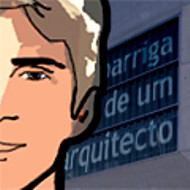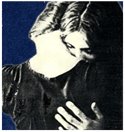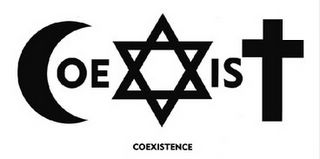Martyrdom in Europe
News that a native Belgian-born convert to Islam blew herself up in Iraq, becomingthe first female Western convert to Islam to blow herself up for "martyrdom", should not have surprised the West, for martyrdom as an aspect of extremist violence has a long history in both Islam and Christianity.
[...]
But Muriel Deraque's tragic end in Iraq could be a sign that the lure of religious self-sacrifice is once again resonating among some Europeans, a zeal that isn't exclusive to fanatical followers of Islam. [...] I find in Muriel's story a confirmation that the spiritual wall that separates Muslim and Christian extremism isn't very thick. [...] Indeed, the fight against evil worldwide provides Catholic and Islamic zealots a lot to agree on, including the practice of martyrdom.
Doctrinal similarities between Roman Catholicism and Islam provide an easy bridge for dissatisfied Christians to cross into Muslim faith. Seen through the window of Catholic orthodoxy, Muriel's decision not only becomes conceivable -- even the late Pope John Paul II called the invasion of Iraq immoral -- but also hints that she may be only the first of a long line of European defenders of God getting ready to fight against Western materialism and moral turpitude.
Martyrdom, intrinsic to Catholicism, rose to prominence during the fourth century when Catholics came to believe that dying for one's faith was not just a duty, but also an honor and a privilege. Under Catholic canon law, Christian martyrs are assured immediate ascension to Paradise upon their death. Martyrdom cleanses the person of every sin, even capital ones. At the time of the Crusades, the promise of eternal life achieved through fighting for the glory of God, and not only the lure of free land and war loot, compelled thousands of Christians to travel to Jerusalem, especially during the first Crusade.
Closer to our time, the late Pope Jean Paul II actively celebrated the gift of martyrdom. During his papacy, he beatified 266 martyrs. In 1982, he canonized Maximilian Kolbe as a martyr of charity. Kolbe was a Polish priest and theologian who, while interned at Auschwitz in 1941, offered his life in exchange for that of another prisoner. The Nazis condemned him to slow death by starvation, but seeing that he was lasting longer than expected they terminated him with a poisoned injection. Today Kolbe is considered the protector saint of journalists, families, prisoners and chemically addicted persons.
"Charity, in conformity with the radical demands of the Gospel, can lead the believer to the supreme witness of martyrdom," wrote JPII in his encyclical Veritatis Splendori. In so doing, he recognized that those who act -- witness -- on their faith against tyranny are to be considered martyrs. While the definition has been used generally to recognize those who do not fear self-destruction for the sake of affirming the sacredness of human life, in the U.S., anti-abortion bombers and snipers do not hesitate to cloak themselves with the mantle of martyrdom.
[...]
In 2003, French Judge Jean-Louis Bruguiere, foretelling what would come years later, warned that terrorist networks in Europe were actively seeking to recruit Caucasian women. He predicted that in an initial phase they would be used merely for logistics and communication, but that it would be just matter of time before they started to carry out attacks themselves. Deraque's case seems to confirm that the time has come.
Paolo Pontoniere in
Religious Martyrdom Is a European Ideal, Too
via Pacific News Service
[...]
But Muriel Deraque's tragic end in Iraq could be a sign that the lure of religious self-sacrifice is once again resonating among some Europeans, a zeal that isn't exclusive to fanatical followers of Islam. [...] I find in Muriel's story a confirmation that the spiritual wall that separates Muslim and Christian extremism isn't very thick. [...] Indeed, the fight against evil worldwide provides Catholic and Islamic zealots a lot to agree on, including the practice of martyrdom.
Doctrinal similarities between Roman Catholicism and Islam provide an easy bridge for dissatisfied Christians to cross into Muslim faith. Seen through the window of Catholic orthodoxy, Muriel's decision not only becomes conceivable -- even the late Pope John Paul II called the invasion of Iraq immoral -- but also hints that she may be only the first of a long line of European defenders of God getting ready to fight against Western materialism and moral turpitude.
Martyrdom, intrinsic to Catholicism, rose to prominence during the fourth century when Catholics came to believe that dying for one's faith was not just a duty, but also an honor and a privilege. Under Catholic canon law, Christian martyrs are assured immediate ascension to Paradise upon their death. Martyrdom cleanses the person of every sin, even capital ones. At the time of the Crusades, the promise of eternal life achieved through fighting for the glory of God, and not only the lure of free land and war loot, compelled thousands of Christians to travel to Jerusalem, especially during the first Crusade.
Closer to our time, the late Pope Jean Paul II actively celebrated the gift of martyrdom. During his papacy, he beatified 266 martyrs. In 1982, he canonized Maximilian Kolbe as a martyr of charity. Kolbe was a Polish priest and theologian who, while interned at Auschwitz in 1941, offered his life in exchange for that of another prisoner. The Nazis condemned him to slow death by starvation, but seeing that he was lasting longer than expected they terminated him with a poisoned injection. Today Kolbe is considered the protector saint of journalists, families, prisoners and chemically addicted persons.
"Charity, in conformity with the radical demands of the Gospel, can lead the believer to the supreme witness of martyrdom," wrote JPII in his encyclical Veritatis Splendori. In so doing, he recognized that those who act -- witness -- on their faith against tyranny are to be considered martyrs. While the definition has been used generally to recognize those who do not fear self-destruction for the sake of affirming the sacredness of human life, in the U.S., anti-abortion bombers and snipers do not hesitate to cloak themselves with the mantle of martyrdom.
[...]
In 2003, French Judge Jean-Louis Bruguiere, foretelling what would come years later, warned that terrorist networks in Europe were actively seeking to recruit Caucasian women. He predicted that in an initial phase they would be used merely for logistics and communication, but that it would be just matter of time before they started to carry out attacks themselves. Deraque's case seems to confirm that the time has come.
Paolo Pontoniere in
Religious Martyrdom Is a European Ideal, Too
via Pacific News Service
![[quote_____:THAT]](http://static.flickr.com/139/317847903_a7670eed73_b.jpg)





















![[quote_____:THAT]](http://static.flickr.com/101/254194522_4ee4c6e656_o.jpg)
0 Comments:
Post a Comment
<< Home